Robert E. Friedman believes we can close the racial wealth divide in a generation. “I believe in the promise of this country … and in this community,” says Friedman, founder of Prosperity Now and author of A Few Thousand Dollars. “St. Louis has become a symbol to the country of the results of racial inequity, and I think it’s leading the way to close the racial wealth divide, and to let America live up to its ideals.”
Friedman was in St. Louis Oct. 22 to outline his vision for how to achieve this goal. Michael Sherraden offered opening remarks and introductions, highlighting the results of his 40-year partnership with Friedman.
Following Friedman’s presentation was a discussion with four panelists: St. Louis Treasurer Tishaura Jones, Esther Shin of Urban Strategies, Malik Ahmed of Better Family Life and Ray Boshara of the Center for Household Financial Stability at the Federal Reserve Bank of St. Louis.
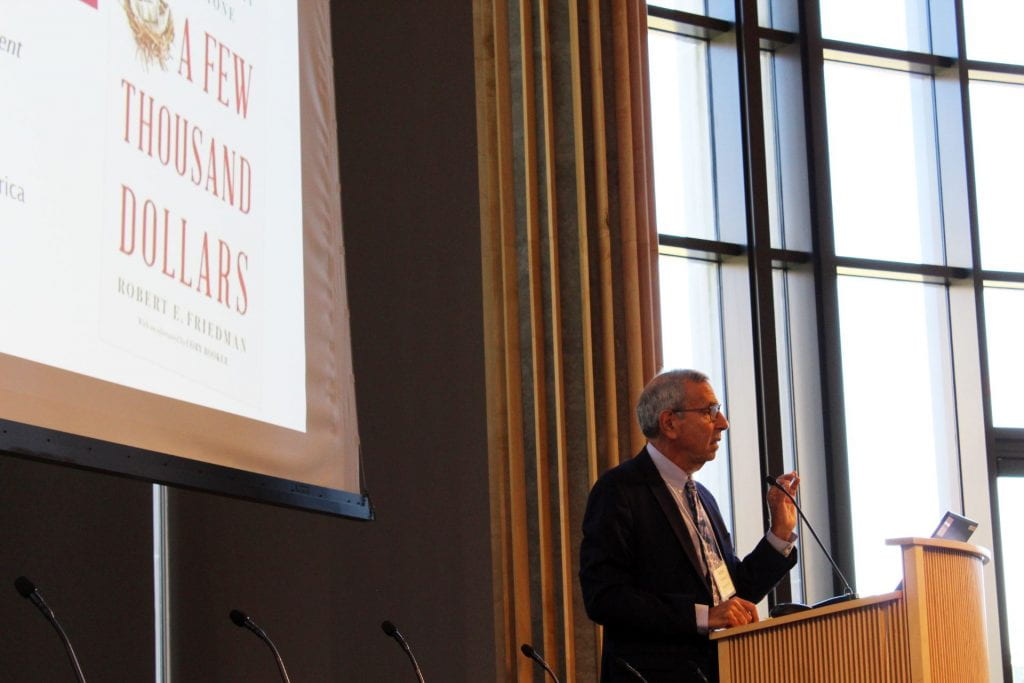
Organized into a series of “lessons” from his book, Friedman’s presentation began with a call for asset building. Though Missouri’s income poverty rate is 19.7%, a much lesser known statistic is the staggering level of liquid asset poverty – 47%.
Citing CSD research, he says, “Given a reasonable opportunity, low-income people, predominantly people of color, women and others will start businesses, create jobs, buy and keep homes, go to college and create wealth for both themselves and the country as a whole.”
Such an opportunity could come in the form of a few thousand dollars, or as Child Development Accounts.
Using the American Dream Demonstration as an example, Friedman says, “We showed that if you match the savings of low-income people, they would save – not because it was easy, not because it didn’t require sacrifice – because it was the price of stability and the price of hope.”
“This is not a question about individual attitudes and behaviors – it’s about structures and systems,” says Friedman about the need for structural change to address the racial wealth divide.
“We have to recognize that the racial wealth divide is a product of history, 400 years in the making,” Friedman states before describing the Homestead Act as an example of federal policy that built wealth by “stealing land from Native Americans, providing it to mostly white men and denying it to people of color.”
Current federal and state tax systems are also drivers of economic inequality, according to Friedman. With a federal tax code that spends $700 billion a year subsidizing the assets of the wealthy, “We’re rewarding the rich, missing the middle and penalizing the poor.” With a more equitable tax structure, “we could match the savings of the poorest fifth 3 to 1 and close the racial wealth divide in a generation.”

Future wealth-building policies and tax reform must be progressive and inclusive, and race is central in the process. To this end, Friedman concluded his presentation with a call to action: “Change state policy. Change federal policy. Demand that our wealth-building policy incentives go to everybody.”
The panel of community leaders followed by responding to Friedman’s remarks.
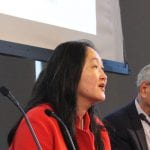
Treasurer Jones described the College Kids Program, a local child savings program implemented by her office. Now entering its fifth year, it will have “enrolled 1,700 more kindergarten students … and the assets saved will top $1,000,000.”
She discussed reparations as a national topic, but noted that “We can’t wait for Washington to act. What we can do in St. Louis is invest in programs like College Kids to change the trajectories of possibilities for low-income families.”
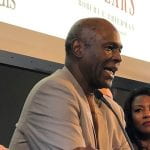
Shin offered a framework for partnership to increase economic mobility. This includes clearly naming racism as a cause for preventing success. “The reality is that racism always finds a way to game the system … Race has to be at the forefront.”
Ahmed discussed Better Family Life’s history of connecting people with matched Individual Development Accounts: “We saw for the first time people who had never saved before, put their nickels and dimes together … and all of a sudden, they had enough for an apartment, and a car, and eventually to buy home.”
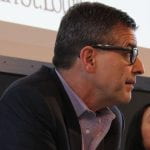
Boshara closed the panel by offering his perspective on Friedman’s book. In addition to emphasizing the racial wealth gap, the book is relevant to other forms of wealth inequality, such as the generational and educational wealth gaps, says Boshara. To understand these concepts, data are important, he says, “but you can’t just do data. You have to organize, you have to frame, you have to communicate, you have to be there when there’s an opportunity to move a policy forward.”
The event concluded with audience questions and discussion. Attendees and panelists discussed specific action steps to close the wealth gap and spark prosperity for all.
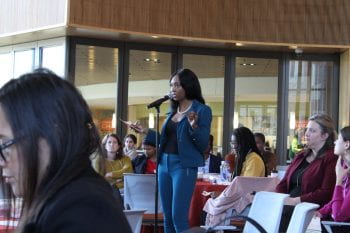
This event was organized and sponsored by the Center for Social Development and cosponsored by the Center for the Study of Race, Ethnicity & Equity, Clark-Fox Policy Institute, the Collaboration on Race, Inequality, and Social Mobility in America at Washington University in St. Louis and Grand Challenges for Social Work.
